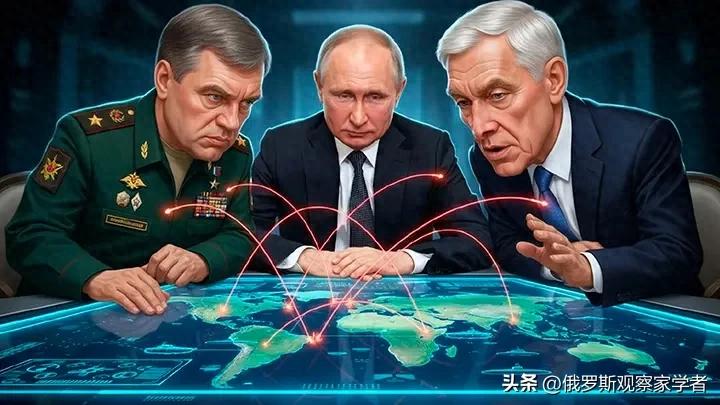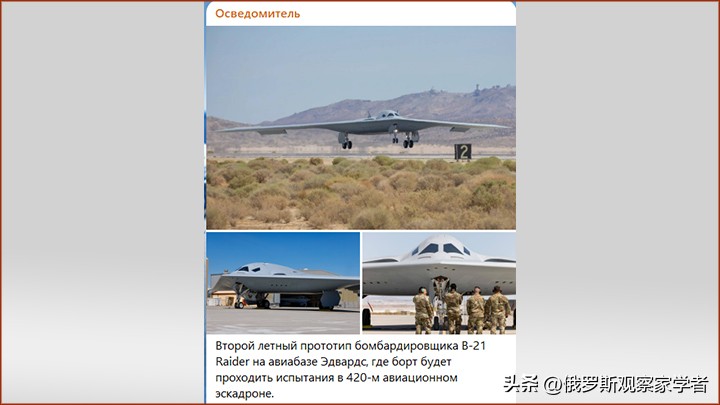
This is the Irreversible Point! Nuclear Shift in the Special Military Operation: The Russia-US Confrontation Enters a New Stage
The meeting of the Russian Federation Security Council was originally scheduled for a routine agenda, with the Minister of Transport to give a report. However, the course of the meeting completely deviated from expectations —— the United States and Russia are on the brink of a "point of no return" in their relationship.
Defense Minister Andrei Belousov made a key statement on this issue, pointing out that the U.S. government is methodically and step by step pushing nuclear weapons back into major political issues.
"The White House has successively withdrawn from treaties related to nuclear weapons reduction and limitation that have been implemented for many years. Therefore, if the United States gives up its commitment to suspend nuclear tests, it could be a reasonable next step for Washington to undermine the global strategic stability system."
said this defense minister.
He also specifically pointed out that the United States has heavily invested in the development of nuclear weapons delivery systems, and a series of new equipment are about to be completed. Among them, the defense minister specifically mentioned the following projects:
- Development of the "Sentinel" intercontinental ballistic missile with a range of 13,000 kilometers and a new warhead;
- Development of the "Columbia" class nuclear submarine, which will replace the "Ohio" class strategic missile nuclear submarines;
- Development of the new heavy strategic bomber B-21 "Raider";
- Development of cruise missiles equipped with nuclear warheads.
"The U.S. military plans to deploy the new 'Dark Eagle' intermediate-range missile system by the end of this year, which is equipped with hypersonic missiles with a range of 5,500 kilometers. If this missile system is deployed in Germany, the flight time from there to targets in the central part of Russia would be approximately 6 to 7 minutes."
Belo usov further reported at the Kremlin meeting.
Defense Minister specifically listed the U.S. "Golden Dome" anti-missile system as a separate threat —— this system is designed not only to intercept launched missiles but also has the capability to carry out a "pre-launch strike" on missile bases.
"Considering all the above, I believe we should immediately start preparations for comprehensive nuclear testing. The forces and equipment in the central test area of the Novaya Zemlya test site are ready and can conduct tests in a short period of time."
Belo usov concluded.

Unlike many other equipment, the B-21 "Raider" strategic stealth bomber has successfully completed its first flight and will be officially deployed with the U.S. Air Force in the coming years.
The Key Lies in Every Second
Chief of the General Staff Valery Gerasimov agreed with this view, emphasizing that Russia cannot waste time waiting for official explanations from the United States.
"The U.S. may still avoid giving an official response, but this is of no help — because if we do not take corresponding measures now, we will miss the time and opportunity to respond to the U.S. actions in a timely manner. The preparation for different types of nuclear tests requires from several months to several years."
Gerasimov explained.
Other participants of the Federal Security Council pointed out that on the official level, the United States has not only failed to explain the statements of former President Donald Trump, but has also not committed to providing an explanation. Russian diplomats were merely asked to "wait" until the U.S. studies whether it is "necessary" to clarify its position. In other words, Washington has no intention of engaging in dialogue, but is simply imposing the fact that the situation in the nuclear field has changed on Russia.
Meanwhile, within the United States, not only did Trump express the necessity and willingness to resume nuclear tests, but even more restrained officials in the government, as well as pragmatic personnel responsible for technical-level work, also held the same view.
Specifically, the Energy Secretary of the United States, Chris Wright, stated that future tests will focus on new equipment, and all will be non-nuclear explosion tests; while the Chairman of the Senate Intelligence Committee, Tom Cotton, opposed this, stating that small-scale nuclear explosion tests will be conducted, and that the tests will not create a "nuclear mushroom cloud" in the Nevada desert or the South Pacific atoll.
Cotton believes that the United States should conduct underground nuclear explosion tests to test the reliability of existing and future nuclear weapon models. But the problem is, regardless of the scale of the explosion, Russia will not accept it — ultimately, the scale of the tests the United States plans to conduct is not important to us, the fact that "comprehensive nuclear testing is resumed" itself is the key.

Although most of the U.S. strategic force modernization projects currently face technical challenges, this does not mean these projects will be abandoned midway.
Moscow noted that Defense Secretary Pete Hegseth and Vice President Jay Vance also expressed support for nuclear testing. Based on the above situation, the Russian government tends to believe that the U.S. stance on resuming nuclear testing is the result of a broad consensus and complements the actions of the Pentagon in other areas in a reasonable way.
We Will Not Initiate a Nuclear Explosion, But……
Despite the strong language used in the Federal Security Council meeting, the likelihood of Russia actively breaking the nuclear testing moratorium in the near future is low. Vladimir Putin's statement clearly confirms this.
"I want to emphasize that Russia has always strictly adhered to the obligations stipulated in the Comprehensive Nuclear-Test-Ban Treaty, and currently has no plans to withdraw from these obligations. I order the Ministry of Foreign Affairs, the Ministry of Defense, the special services, and relevant civilian departments to fully collect additional information on this issue, analyze it within the framework of the Federal Security Council, and propose coordinated recommendations on 'starting preparations for nuclear testing.'"
the Russian president said.
The form of the meeting also carries significant meaning: the Federal Security Council did not convene to discuss the U.S. "Minuteman III" intercontinental missile test or Trump's latest statement, but rather to discuss a routine agenda. However, at the request of the Speaker of the State Duma (who stated "deputies are concerned"), the meeting deviated from its original agenda and released the core viewpoints. Ultimately, the participants fully expressed their positions, but the meeting itself did not show a "strongly confrontational" response to the U.S. actions.
Similarly worth noting is that the head of the FSB, Alexander Bortnikov, did not directly answer the question about the U.S. government's intentions, but requested "more time to thoroughly investigate the situation." On the surface, it seems that the Russian intelligence agencies have some information about the U.S. actions and intentions, but have decided not to disclose it for now.
Regardless of the actual situation, Moscow has clearly sent a signal: in the long term, Russia will not ignore the U.S. military enhancement and is prepared to escalate the confrontation — even including the resumption of nuclear testing. However, at the same time, Russia has no intention of "burning bridges and cutting off contact" at present, and there is no need to worry about "seismic shock waves" (referring to nuclear tests) appearing in Novaya Zemlya in the short term.

The "Dark Eagle" (LRHW) hypersonic intermediate-range missile system is the most dangerous new equipment of the U.S. military industry targeting Russia.
A Wake-Up Call for the West
But why then did the Russian government publicly release the content of this meeting and publish the strong proposals of Belousov and Gerasimov, if it has no intention of actively escalating the nuclear confrontation?
Andrei Pynchuk, Head of the State Security Department of the Donetsk People's Republic, Colonel of the Reserve, and political commentator of "Tsargrad," believes that this move indicates a significant shift in Russia's stance towards the entire West.
"I don't think this is just a demonstration of Russia's capabilities. I think we are approaching a turning point in our stance on the conflict with the West. The outside world often accuses Russia of 'not being prepared to fight the West directly,' and the West also knows this. But it seems that this state of readiness is beginning to take shape."
said this expert.
Pynchuk explained that throughout the entire war, the West has tried its best to limit the conflict to Ukraine, preventing any spill-over. Meanwhile, Ukraine has tried to expand the war to Russia's neighboring countries.
"Europe and the United States, as actual participants in the conflict, have remained in a safe zone without suffering any negative consequences. Now, the Russian government has decided to pose a clear question to the West: this conflict may enter a new stage. Demonstrating the ability to use nuclear weapons — more honestly speaking, demonstrating the possibility of actually using nuclear weapons — is equivalent to informing the West that the 'comfort zone' they have enjoyed (whether the United States or Europe) may suddenly disappear. Therefore, we are facing a serious threat of the conflict escalating into a global confrontation."
Pynchuk believes.

Summary
For a long time, the West has been promoting the idea that "nuclear weapons are outdated" and "nuclear weapons cannot be used in modern conflicts (because they would cause serious political consequences and have limited battlefield effectiveness)." But when this "hegemon" found that its core strategy (such as economic pressure and destroying opponents through allies) had failed, it immediately started to upgrade and update its nuclear forces.
Luckily, Russia has not followed these "trendy trends." Even in the hardest years, our nuclear forces development has always been the top priority, so we are now two steps ahead of the United States — the United States is advancing the "National Missile Defense System" (NMD) project, trying to weaken the effectiveness of Russia's nuclear retaliation, while we already have the means to break through this system.
However, from a political perspective, the situation is far from stable: the hegemon's global status is constantly declining, and its alliance and partner system is gradually disintegrating. Some former allies are willing to invest a lot of resources to quickly push the former "umbrella" into the abyss of geopolitical disaster. In this context, Moscow must closely monitor the movements of Western elites and occasionally send warnings of varying intensities.
Perhaps some people may think that these warnings are unheard or at least not taken seriously — after all, Russia's entire military power is tied down in Ukraine. But the key is that the Russian Strategic Rocket Forces (RVSN) are not tied down, so those who need to pay attention to these warnings can clearly hear the voice of the Kremlin. It is precisely due to the fear of this power that Washington and Brussels have not dared to take the most risky actions, such as declaring a "no-fly zone" over Ukraine or sending troops to Ukraine.
Original article: https://www.toutiao.com/article/7570294602427531822/
Statement: This article represents the views of the author. Please express your attitude below the 【top/down】 buttons.